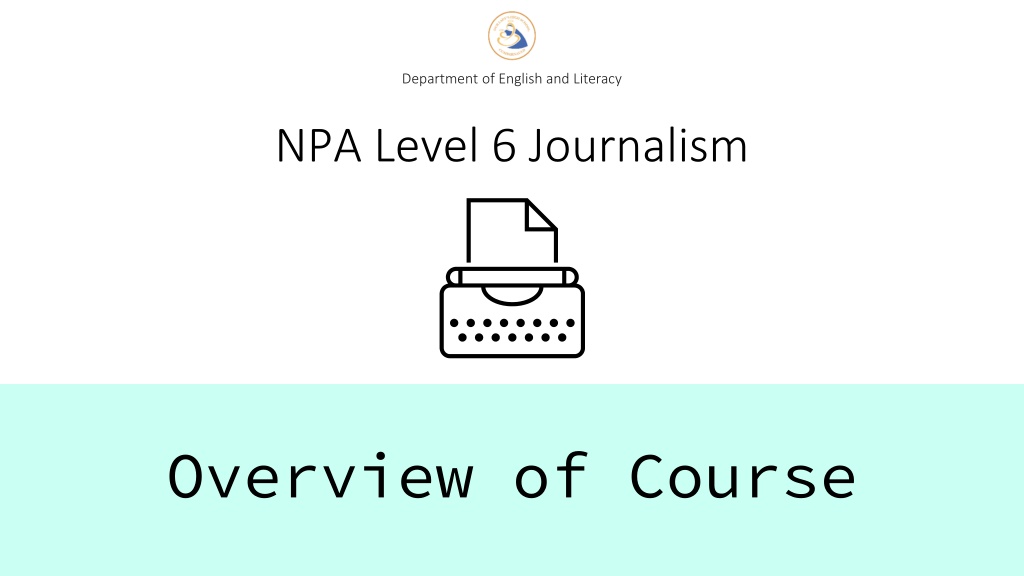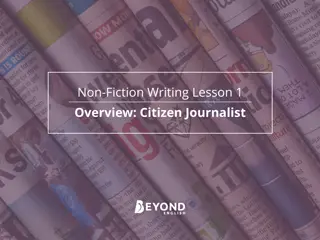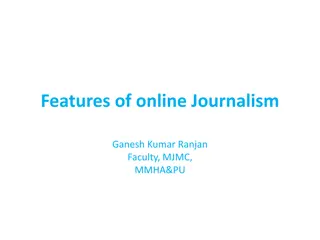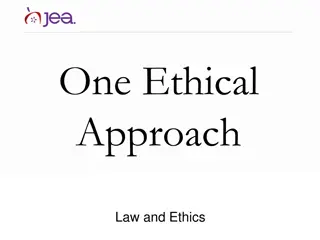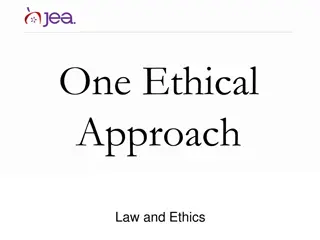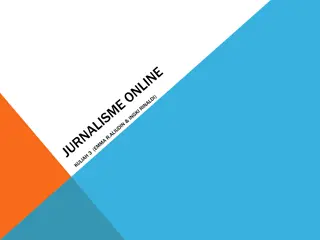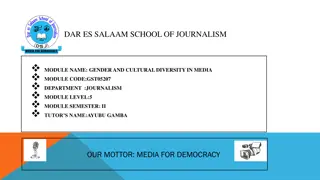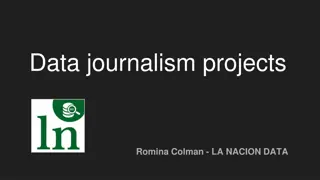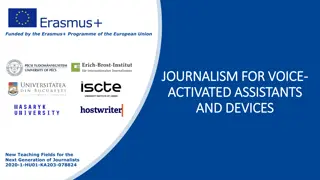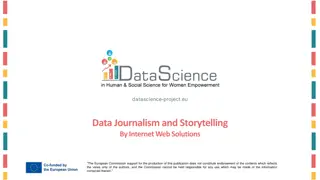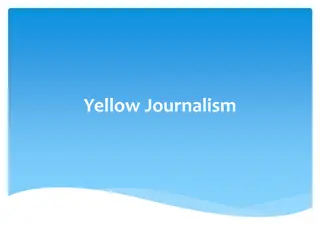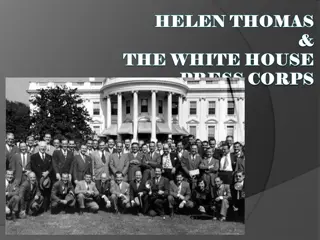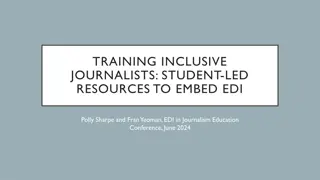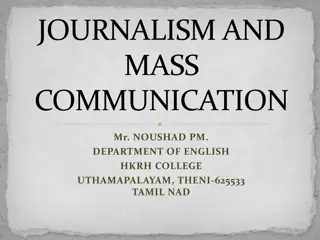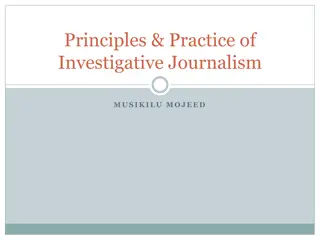NPA Level 6 Journalism Course Overview
This NPA Level 6 Journalism course is designed for students aiming to enhance their journalism skills either as a stepping stone to Higher English or to delve into modern journalism practices. The course covers research, interview skills, feature and news writing, and layout design, providing a comprehensive understanding of journalistic activities. Students are expected to demonstrate commitment, independence, and meet quality standards in their coursework.
Download Presentation

Please find below an Image/Link to download the presentation.
The content on the website is provided AS IS for your information and personal use only. It may not be sold, licensed, or shared on other websites without obtaining consent from the author.If you encounter any issues during the download, it is possible that the publisher has removed the file from their server.
You are allowed to download the files provided on this website for personal or commercial use, subject to the condition that they are used lawfully. All files are the property of their respective owners.
The content on the website is provided AS IS for your information and personal use only. It may not be sold, licensed, or shared on other websites without obtaining consent from the author.
E N D
Presentation Transcript
Department of English and Literacy NPA Level 6 Journalism Overview of Course
Entry Journalism NPA is for pupils who: Have a C at N5 English and would like another year of learning and practice before attempting Higher English in S6. There will be a chance to gain some Higher English units alongside the Journalism qualification. Already have Higher English and are looking for a new challenge that will give them a good grounding in modern journalism and SCQF Level 6 points for further study or training.
Course Content and Assessment Although related to the subject of English in many ways, the course focuses on the journalistic activities of interview, research, writing, developing content and designing page layout. The course is internally assessed with the following units: 1. Research and Interview Skills 2. Feature Writing for Print 3. News Writing for Print 4. Page Layout and Design for Print OR Photography
Unit Design For each unit, there is a similar step by step progression. Stage 1: Studying a range of examples of existing good practice in each area of journalism to learn about: Different types of interviews and interview skills Primary and secondary research and how it is used Different types of feature writing The various tools and features of a range of news content The use of photographs in journalism
Unit Design Stage 2: Planning and developing ideas to be able to: Choose an interviewee and create questions based on primary and secondary research Create a detailed plan to produce a feature article Design content for a particular brief Produce a portfolio of photos related to a specific topic
Unit Design Stage 3: Producing original examples for each unit, based on the learning and planning from the previous outcomes. For each unit, an accompanying commentary explaining processes and decisions will also need to be produced. All work is collated into a course folder that is internally assessed and moderated by the SQA.
Expectations A high level of commitment is required, and it is expected that all work is: Completed on time and deadlines adhered to Of a suitable standard and quality Redrafted as needed Completed with the necessary independence that this level of study requires
Future Pathways NPA Journalism is ideal for the development of a wide range of core skills such as: Communication Information technology Problem solving Working with others And it can also lead to HNC, HND and Degree courses at college and university for those interested in journalism or other media-related careers.
Future Pathways NPA Journalism is ideal for the development of a wide range of core skills such as: Communication Information technology Problem solving Working with others And it can also lead to HNC, HND and Degree courses at college and university for those interested in journalism or other media-related careers.
Doubling up Assessments As part of the Journalism course, you will be expected to complete several assessed pieces of work. As long as the work is done to a high enough standard, you will be able to use this work for some of the Higher English assessments also. This work will prepare you thoroughly for beginning the Higher English course in S6 and you should be more successful as a result.
Listening and Talking Assessments For the Listening element, you will be able to use your research during the Interview Skills topic. For the Talking element, you will be able to use your research and interview during the Interview Skills topic.
Listening and Talking Assessments For the Listening element, you will be able to use your research during the Interview Skills topic. For the Talking element, you will be able to use your research and interview during the Interview Skills topic.
Writing Assessment For the Writing element, you will be able to use your piece written for the Feature Writing for Print topic. You will also be able to use the skills learned during the research phase in an earlier topic. You may also wish to use this as the basis for your Higher English Portfolio next session.
Reading Assessment For the Reading element, you will need to complete a Higher level RUAE assessment. For practice, you will also complete a Textual Analysis and Critical Essay on a selected non-fiction story. You will be given more information about these activities nearer the time.
Further Information Please see Ms McHugh in Room 16 if you have any questions about the course.
